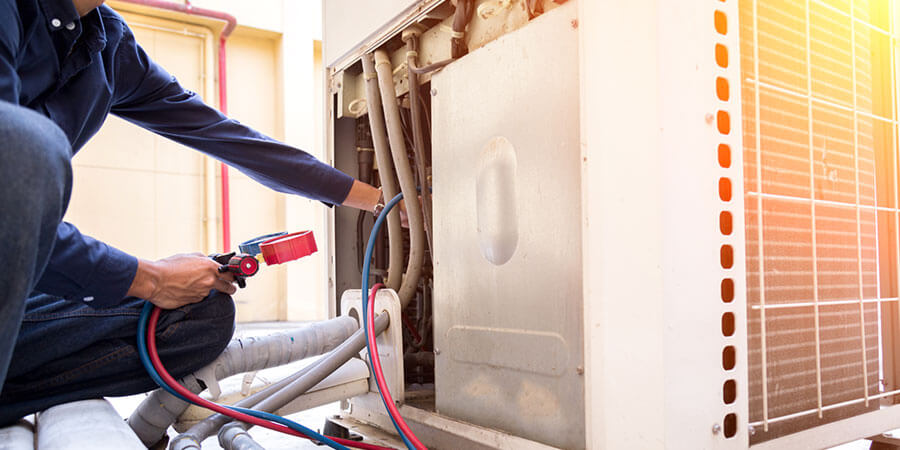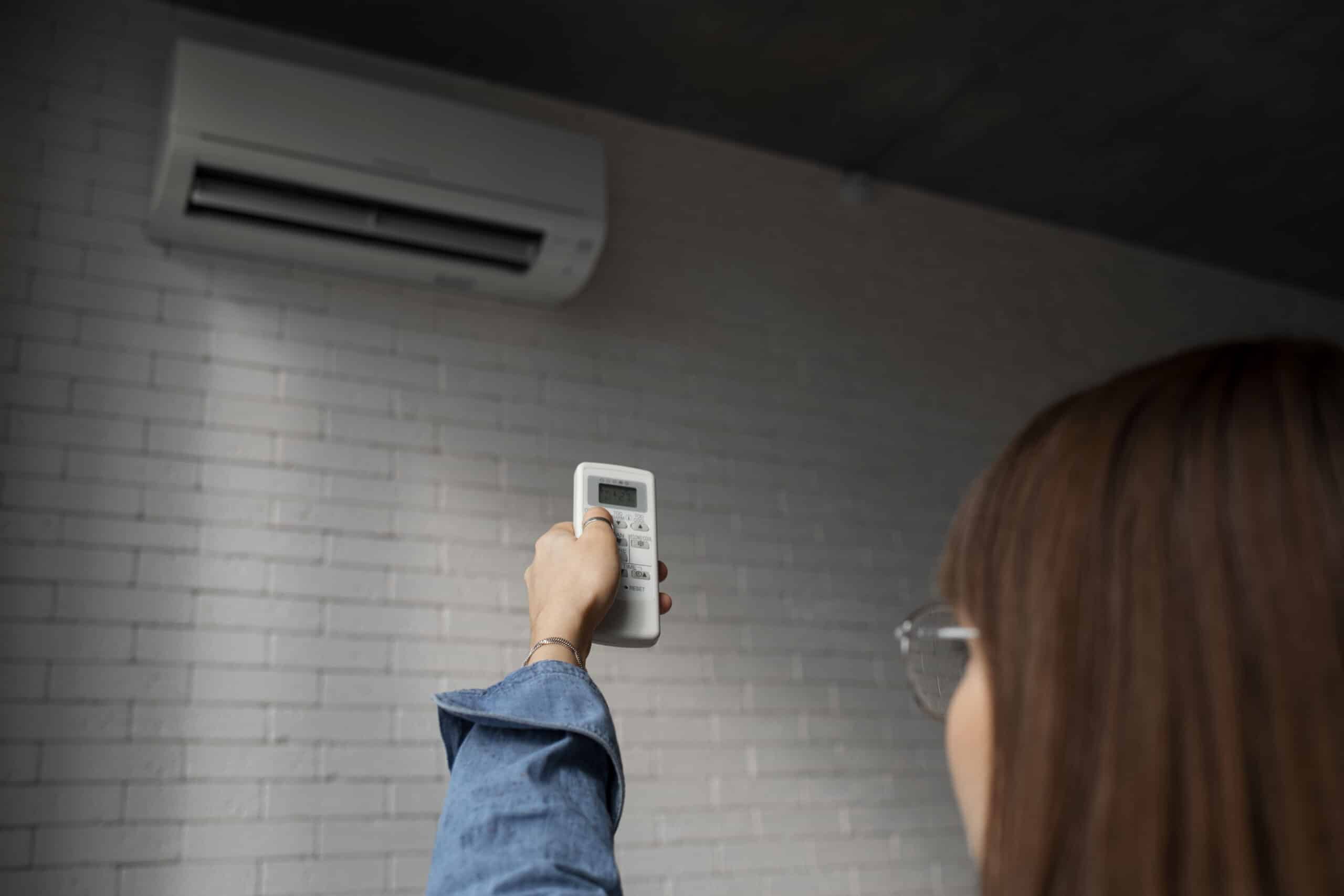Just How to Choose the Right A/c System for Your Needs
Selecting the suitable cooling and heating system is a critical choice that needs mindful factor to consider of different aspects. Begin by evaluating your home's dimension, layout, and one-of-a-kind needs, as these elements dictate the necessary capability and configuration of the system. Additionally, developing a spending plan that incorporates setup and lasting operational prices is crucial. As you consider your alternatives, understanding energy effectiveness rankings and the ramifications of your neighborhood climate will certainly play a substantial role in your choice. Nonetheless, the myriad of system kinds available can complicate this procedure, leading one to ask yourself which course eventually causes ideal comfort and efficiency.
Evaluate Your Home Size
Evaluating your home size is an important initial step in selecting the proper A/c system. A Cooling and heating system that is as well tiny will struggle to preserve comfy temperature levels, leading to enhanced energy usage and use on the system.
To precisely examine your home dimension, gauge the square footage of each space, considering variables such as ceiling height and the design. Furthermore, think about the insulation top quality and the number of windows, as these components affect thermal efficiency. Homes with open layout may call for various system configurations compared to those with several split spaces.
Making Use Of the Guidebook J lots computation approach can provide a more precise estimate of your HVAC needs. This method accounts for various aspects, including neighborhood climate, solar gain, and tenancy patterns. By thoroughly examining these aspects, you can make sure that your chosen heating and cooling system is properly sized, leading to enhanced convenience, power effectiveness, and long life of the tools.
Determine Your Budget Plan
Identifying your budget is a crucial action in the HVAC system selection procedure, as it sets the criteria for your choices - DMAKS HVAC. An a/c system is a substantial investment, and understanding your financial limitations will certainly help limit options that fit within your ways
Begin by evaluating not only the initial acquisition rate but also setup costs, which can differ significantly depending upon the complexity of the project. Furthermore, consider recurring costs such as upkeep, repairs, and energy consumption. A system may appear budget friendly initially but can result in higher expenses gradually if it is less efficient.
It is a good idea to allocate a contingency fund for unanticipated expenses that may occur during installment or first system modifications (DMAKS HVAC). In addition, explore financing choices or refunds that might be available, as these can relieve the worry of upfront costs
Eventually, having a clear budget enables you to engage with HVAC experts better, guaranteeing you obtain tailored advice that aligns with your economic objectives and home requirements. By being persistent concerning your budget plan, you can make enlightened decisions that boost comfort without compromising economic stability.
Evaluate Energy Efficiency
Energy efficiency plays a crucial function in the general efficiency and cost-effectiveness of your Cooling and heating system. Look for systems with a high Seasonal Energy Efficiency Proportion (SEER) for cooling down and a high Yearly Fuel Use Efficiency (AFUE) ranking for see this website home heating.
In addition, think about the Energy Celebrity qualification, which symbolizes that the system fulfills strict performance guidelines set by the Environmental Security Firm. Purchasing an Energy Star-rated HVAC system can cause considerable cost savings in time, especially in locations with severe temperature level variations.
Another aspect to assess is the system's size and ability. An extra-large or small device can cause inefficiency and increased power costs. DMAKS HVAC. Appropriate sizing, commonly identified with a Manual J load estimation, makes sure that the system runs at optimum performance


Consider Environment and Environment
When picking a cooling and heating system, it is critical to take into consideration the regional environment and environmental problems, as these elements dramatically affect the system's efficiency and efficiency. Different areas experience varying temperature level extremes, humidity degrees, and seasonal modifications, all of which impact home heating and cooling needs.

Furthermore, local ecological aspects, such as air top quality and prospective allergens, must inform your choice. Solutions furnished with sophisticated filtering modern technologies can aid alleviate contaminants and give cleaner air. Furthermore, consider the energy sources available in your location-- some a/c systems are extra efficient when powered by all-natural gas or sustainable energy resources.
Eventually, aligning your heating and cooling system option with your local climate and environmental considerations will certainly bring about improved convenience, improved performance, and reduced power prices.
Explore System Kind and Features
As property owners seek to optimize convenience and performance, checking out the numerous sorts of cooling and heating systems and their unique features becomes necessary. The main kinds of a/c systems include air conditioning, warmth pumps, ductless mini-split systems, and heating systems. Each system supplies unique benefits tailored to various demands and choices.
Central air conditioning systems provide uniform cooling throughout a home, making them perfect for bigger areas. Warm pumps function as both heating and cooling down solutions, making use of power to move warmth, which can cause reduced power expenses. Ductless mini-split Full Article systems are coming to be progressively preferred due to their flexibility and ease of setup, enabling homeowners to regulate the temperature in specific spaces without extensive ductwork.

Conclusion
In final thought, choosing the suitable cooling and heating system requires cautious consideration of different aspects, webpage including home size, spending plan constraints, energy performance, local environment, and readily available system types. A complete evaluation of these elements guarantees optimal convenience and cost-effectiveness. By following a structured approach, home owners can make informed choices that align with their details demands and preferences, inevitably leading to enhanced interior air top quality and energy financial savings.